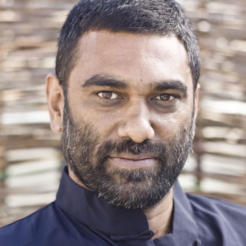Civil society organisations must not give up the fight to influence policy and governments, the international executive director of Greenpeace has said.
Kumi Naidoo was speaking at the closing plenary of the International Fundraising Congress in the Netherlands last week.
He said governments around the world were comfortable when charities deliver services, but not when it advocated "visionary transformative system redesign”.
“Many of our governments and business leaders are very comfortable when we step up and say there are poor children that need feeding programmes or provide shelters for women who have experienced domestic violence," he said.
"But when we start saying we need domestic violence legislation to prevent women having to end up in these shelters in the first place; you get told 'It is not your job, who elected you?'"
“We as civil society must not give up that fight to say we have a right to deliver services to the most vulnerable, but also being able to affect and voice concerns around policy and governance is critically important as well.”
Naidoo, who is from South Africa and became involved in the country’s liberation struggle at the age of 15, gave an inspirational speech that stressed the importance of direct action, challenging the status quo and the need for civil organisations to collaborate to create a more sustainable and just world.
“The thing that inspired me to take action was a moral choice put by inspiring people saying ‘you have a choice to make – you are either part of the problem or part of the solution’. If you take neutrality in the face of extreme injustice it is a choice to be part of the system.”
He said that although Greenpeace was winning “significant battles”, it was losing the war.
“One of the biggest challenges is that we stay in the silos created over time. For the nature of our work we have to have specialisation, but now is the time for us to re-examine what the balance is between specialisation and integration of agendas.”









